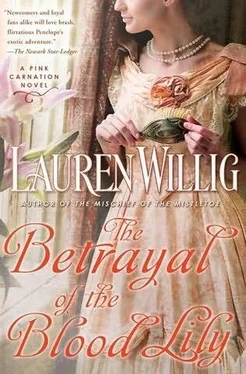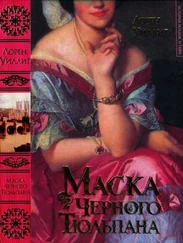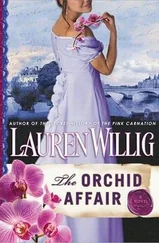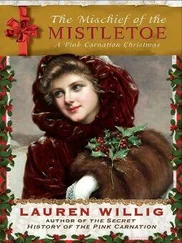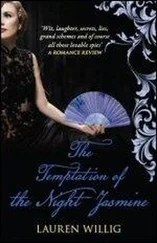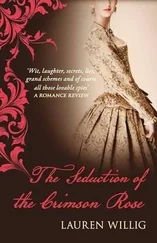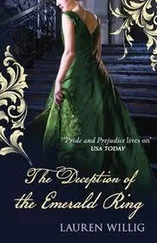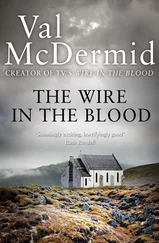Tact had never been Penelope’s strong suit. “Are you quite sure you’re related?”
Far from being offended, the Colonel chuckled comfortably. “It takes many people that way on first meeting — sometimes after, too! My Maria, the boy’s mother, was of Welsh extraction. He gets his coloring from her. It’s been a mixed blessing for him out here,” said the Colonel.
Penelope looked at him quizzically.
“Life is seldom kind to the half-caste,” explained the Colonel, and some of the twinkle seemed to go out of him. “Or those perceived to be so. And especially not in India.”
“I’m half Irish,” Penelope volunteered, by way of solidarity.
She could picture her mother cringing as she said it. Respectably brunette herself, her mother had spent most of her life trying to pretend that she was as English as Wedgwood pottery. Penelope’s hair had been a sore point with her mother, who saw her secret shame revealed every time her daughter’s flaming head hove into view.
“A fine people, the Irish, and bonny fighters,” said the Colonel politely. From his name and his diction, he was Scots, although his accent veered off in odd ways on vowels in a way that was no longer quite any one particular accent at all. “Ah,” he said with pleasure, looking over her shoulder. “Here comes my Alex. He’ll be far more entertaining for you than an old man like me.”
“Nonsense,” said Penelope, smiling up at the darling old colonel. “I couldn’t have been better entertained.”
His Alex appeared just as the Colonel was tapping a finger against Penelope’s cheek. He looked from his father to her with a resigned expression that suggested that this was not the first time he had come upon his father chatting up an attractive young woman.
But all he said was, “Forgive me. I didn’t like to rush away from the Begum.” Unlike his father’s, his accent was unimpeachably English.
The Colonel laughed his rolling laugh. “She’s in her usual form, is she?”
“Invariably,” he said fondly, with a glance over his shoulder to where the Begum held court in her chair. Recalling himself to his social duties, he looked quizzically at his father.
His father knew exactly what was required. With all the bombast of a born raconteur, he began, “Alex, this charming young lady has been kind enough to sacrifice her own amusement to enliven an old man’s dull existence — ”
“Scarcely old,” interjected Penelope, “and never dull.”
The Colonel beamed approval at her, clearly delighted to have found someone who played the game as he did. “See what I mean, Alex? An angel of goodness, she is. Now, my dear, you must allow me to introduce to you my son, Captain Alex Reid.”
“Captain Reid.” Penelope nodded to him, her eyes alight with laughter.
Captain Reid smiled ruefully in response, complicit in the joke on his father.
The Colonel waved a hand at Penelope. “And this is — ”
“Lady Frederick Staines,” supplied Penelope.
The unaccustomed name felt clumsy on her tongue, but certainly not clumsy enough to warrant the reaction it garnered from the two Reids. Any glimmer of warmth disappeared from the Captain’s eyes, while the Colonel looked perturbed, as though he knew there were some bad odor about the name, but he couldn’t remember quite what.
There was only one conclusion to be drawn. The news had spread.
She ought to have expected it would. Just because Calcutta was half a world away didn’t mean that it took no interest in London gossip.
“What brings you to India, Lady Frederick?” the Captain asked. His studiedly casual tone brought a flush to Penelope’s cheeks.
“My husband is undertaking a commission from the government,” she said sharply. “He is to be envoy to the Court of Hyderabad.”
“And you, Lady Frederick?” he asked, in an uncomfortable echo of her own thoughts earlier that evening. Those dark eyes of his were too piercing by half. It was as though he were rooting about in her mind. Penelope didn’t like it one bit.
“Wither he goest, I goest,” said Penelope flippantly.
“I see,” said Captain Reid, but whatever he saw appeared to bring him no pleasure. After a brooding moment, he said abruptly, “Lady Frederick, do you know anything of Hyderabad?”
Penelope eyed him suspiciously, but before she could reply, a hand settled itself familiarly on her bare shoulder.
“There you are, old thing,” Freddy said, as though it was she who had walked away from him, rather than the other way around. “I wondered where you had got to.”
He had brought two friends with him, one in regimentals, the other in evening clothes. Penelope wondered which one of them carried Freddy’s vowels this time. From the smug expression on the face of the army man, Penelope suspected it was he. On the other hand, smugness might very well be his habitual expression. Penelope would expect nothing less of a man who wore three rings on one hand.
Penelope stepped out from under Freddy’s questing hand. “I’ve been very gallantly entertained by Colonel Reid,” she said, batting her lashes at the Colonel and achieving a very petty satisfaction at completely ignoring his son.
Freddy nodded lazily to the Colonel, the gesture amply conveying his complete lack of interest in any man who had served in the East India Company’s army rather than a proper royal regiment. Having dispatched the Colonel, Freddy took inventory of the Captain’s tanned face, his uninspired tailoring.
“And you are?” he demanded.
For a moment, Captain Reid forbore to answer. He simply stood there, studying Freddy with an expression of such clinical detachment that Penelope could feel Freddy beginning to shift from one foot to the other beside her.
After a very long moment, a grim smile sifted across Captain Reid’s face.
“I,” said Captain Reid, “am the man who has the honor of escorting you to Hyderabad.”
“Right,” said Lord Frederick, with an obvious lack of interest. “Wellesley mentioned he would be sending someone.”
From the moment Captain Alex Reid set eyes on the new Special Envoy to the Court of Hyderabad, he had that sinking sensation in his gut that attends a slow tumble off a steep cliff.
He had been, to put it mildly, less than pleased when Wellesley had summarily summoned him to Calcutta, expecting him to drop all his duties in Hyderabad and spend more than a week in travel for an hour’s interview. He had been even less pleased when the Governor General had informed him that he was to play nursemaid to the new envoy, a special envoy the Resident had never requested and certainly didn’t need. Wellesley had not been amused when he pointed that out.
But all that was as nothing compared to the reality of Lord Frederick and his wife. Maybe, if he were very, very lucky, he would wake up in his own bed and find that this had all been a bad dream. One could always hope.
The bad dream, alarmingly corporeal in his London-tailored evening clothes, waved a languid hand at the two men standing beside him. “Do you know . . . ?”
Alex did know them. Daniel Cleave had been in school with him in England. Like him, Cleave had been the son of an officer in the Madras Native Cavalry, sent back to Britain for schooling. Unlike him, Cleave’s father had died in action, and he remained for some years in Tunbridge Wells with his widowed mother before returning to take up a post on the political side of the service. He was, as he had been in school, thorough, conscientious, and entirely incapable of seeing the larger picture. It was that very myopia that had elevated him to the post of Wellesley’s private secretary; the Governor General, thought Alex bitterly, being afflicted with exactly that same shortness of sight.
Читать дальше
